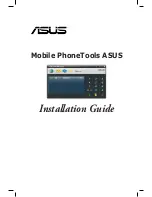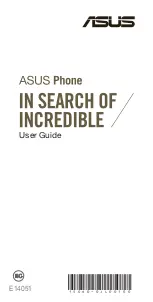
© Sieme
ns
A
G
200
4, C:
\S
iemen
s\
D
TP-S
atz\
Pro
dukte
\A
75_L
ibra_
2\o
ut
put
\S
U
G
\A
75_L
ibra
_FC
C
_us-
left page (6)
of A75_Libra, fcc, us-en, (30.05.2005, 10:36)
Safety precautions
6
VA
R
Langu
age:
am;
V
A
R issue dat
e:
0503
24
phones responsibly and to employ hands-
free devices. Also, if using your phone while
driving, please:
• Give full attention to driving – driving
safely is your first responsibility;
• Use hands-free operation, if available;
• Pull off the road and park before mak-
ing or answering a call, if driving condi-
tions so require.
For vehicles equipped with air bags
An air bag inflates with great force. DO NOT
place objects, including either installed or
portable wireless equipment, in the area
over the air bag or in the air bag deploy-
ment area. If in-vehicle wireless equipment
is improperly installed and the air bag in-
flates, serious injury could result.
Electronic devices
Most modern electronic equipment is
shielded from radio frequency (RF) sig-
nals. However, certain electronic equip-
ment may not be shielded against the RF
signals from your wireless phone.
Pacemakers
The Health Industry Manufacturers' Associ-
ation recommends that a minimum separa-
tion of six inches (6") be maintained be-
tween a handheld wireless phone and a
pacemaker to avoid potential interference
with the pacemaker. These recommenda-
tions are consistent with the independent
research by and recommendations of Wire-
less Technology Research.
Persons with pacemakers
• should ALWAYS keep the phone more
than six inches from their pacemaker
when the phone is turned ON;
• should not carry the phone in a breast
pocket;
• should use the ear opposite the pace-
maker to minimize the potential for in-
terference;
• should turn the phone OFF immediate-
ly if there is any reason to suspect that
interference is taking place.
Hearing aids
Some digital wireless phones may
interfere with some hearing aids. In the
event of such interference, you may want
to consult your service provider or your
hearing aid manufacturer to discuss alter-
natives.
Other medical devices
If you use any other personal medical de-
vices, consult the manufacturers of your
devices to determine if they are ade-
quately shielded from external RF energy.
Your physician may be able to assist you
in obtaining this information.
Turn your phone OFF in health care facili-
ties when any regulations posted in these
areas instruct you to do so. Hospitals or
health care facilities may be using equip-
ment that could be sensitive to external
RF energy.
Vehicles
RF signals may affect improperly installed
or inadequately shielded electronic sys-
tems in motor vehicles. Check with the
manufacturer or its representative regard-
ing your vehicle. You should also consult
the manufacturer of any equipment that
has been added to your vehicle.
Posted facilities
Turn your phone OFF in any facility where
posted notices so require.
Airplanes
FCC and Airline Regulations prohibit using
your phone while in the air. Turn your
phone OFF when requested by the airline.
Check and comply with the policy of your
airline regarding the use of your phone
while the airplane is on the ground.







































